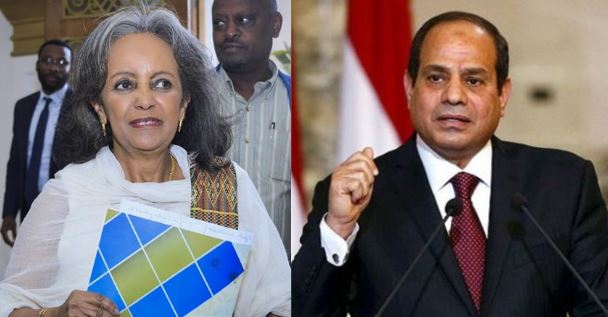Away from the chatter of a global pandemic, in the long-lost areas of the African continent, there is a war brimming and the cause of it is Water—the precious commodity that sustains life on Earth.
Egypt and Ethiopia for years have been embattled in a bitter fight over the sharing of the water of Nile Basin—the priceless source of life for the arid regions of this part of the world, especially Egypt which is fully-dependent on the Nile for its existence.
Nile, the longest river on planet Earth has two main tributaries viz. the White Nile & the Blue Nile. The former originates from the Nile equatorial lakes region whereas the source of the Blue Nile is from the highlands in Ethiopia.
Under the 1959 Nile Agreement, out of the total annual flow of the Nile, Egypt takes 66% of the water and Sudan 22%, and the remaining 12% goes to evaporation. Almost 86% of the water reaching Egypt originates from Ethiopia. This can rise to almost 95% in rainy seasons and despite Ethiopia’s massive contribution to the Nile River flow, its use of the water from the river system is almost next to nothing.
With only 25 percent of Ethiopia’s population having access to electricity, the then government in 2011 decided to start the construction of the Grand Ethiopian Renaissance Dam (GERD).
This dam since then has been the bone of contention between the two countries. The Ethiopian government plans to use GERD to supply electricity to more of its population and also earn some quick nickels by selling surplus energy to neighboring countries.
Build on the upstream of the Nile River, Egypt fears that once completed, the dam will leave Cairo thirsty as the African nation is entirely dependent on the Nile for its water use. Consequently, Egypt has been opposed to any development in the basin and regards the Ethiopian project as an existential threat.
The Dam’s enormity can be gauged from the fact that the reservoir that has formed behind the dam is roughly the same size as the city of Greater London. In another four to six years the reservoir will be Africa’s largest hydroelectric plant when it comes into operation, with the total water volume expected to reach 74bcm.
Last month, the Egyptian and Sudanese governments, after almost a decade of negotiations with Ethiopia took the dispute over GERD to the United Nations Security Council (UNSC).
This situation has spiraled out of control even after the US and Donald Trump intervened. Washington tried to bring the trio on the table together but Ethiopia didn’t agree with the terms set by Trump and walked out of the arrangement citing the US president had “inaccurate and inadequate information” about the issue.
Even high-level discussion in the African Union under the current chair South Africa, have bore no fruits. Egypt and Sudan know that, without a binding agreement, their share of Nile water as downstream countries could be badly affected, especially during drought years.
Two vs one–Egypt, Sudan vs Ethiopia might seem like a contest heavily favored in the former’s corner but that hasn’t been the case. Sudan has not outrightly condemned Ethiopia because it hopes to buy cheap hydropower from it and is also hopeful that GERD may help prevent seasonal floods, regulate the river flows and extend the life span of Sudan’s dams by preventing silting. Sudan’s ambivalence was on full display when it declined to sign an Arab League statement condemning Ethiopia.
To bring Sudan in its corner, Cairo has even tried to solve a decades-long border dispute with it. But such is the power of water and the hydroelectricity that Sudan is looking towards the greater good.
Although Egypt cedes that the building of Dam is not illegal but it wants a greater say in the operations of the Dam and therefore is adopting a more confrontational approach.
Addis Ababa has put its entire hopes of development in the region on the construction of the dam and the common citizens have been hoping that prosperity will prevail in the region, once the dam is completed.
The hegemony of power that Egypt once enjoyed in the area is being chipped away block by block by the building of the dam. Egypt wants to maintain the status quo but a rising financial African power in the form of Ethiopia is reluctant to play by the old rules.
The talks between Cairo, Khartoum and Addis Ababa on sharing the waters of the Nile have yet again broken down and with the rains beating down in Ethiopia and filling the reservoir, another nasty tiff is imminent between the trio.
With 95% of Egypt’s 85 million-strong population living along the river’s banks and delta, one cannot blame Cairo for being agitated over the developments. The GERD is expected to be completed by 2022 and the upcoming two years can either make or break the situation.
The largest hydroelectric power project of Africa could either bring immense prosperity to the region or prove to be the cause of its doom. What will happen, only time can tell but we sincerely hope that its water under the bridge for three countries as they look to needle out a middle path.
